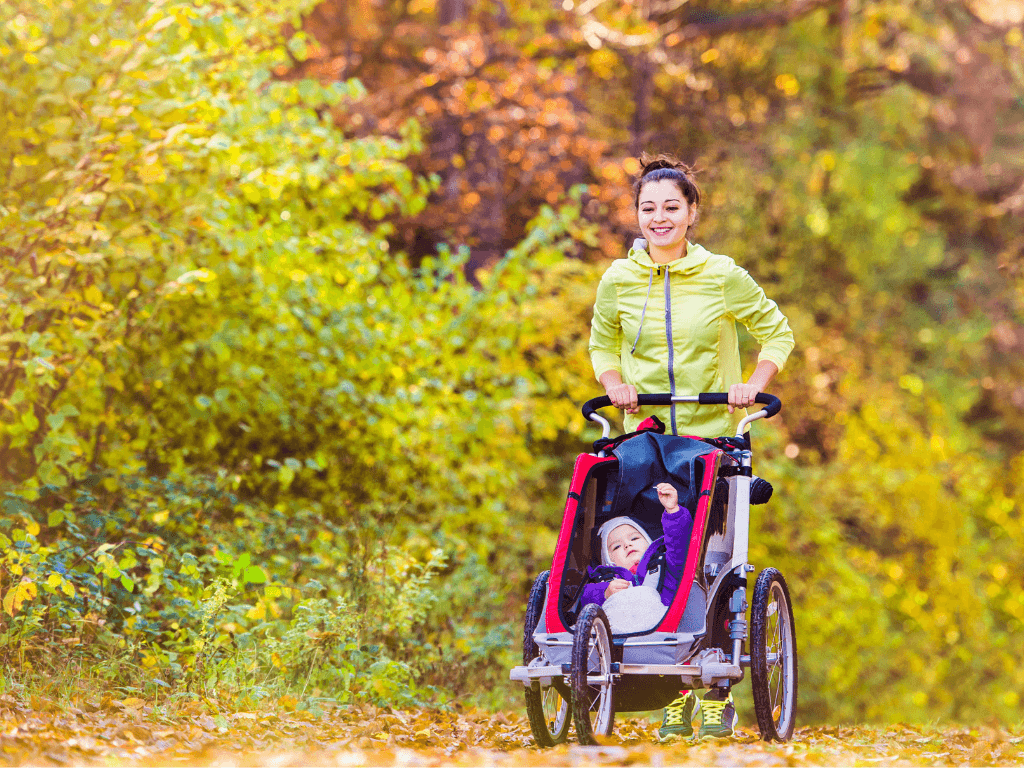Childbearing is a significant milestone in a mother’s life that is often filled with happiness and excitement. However, pregnancy and delivery can be very physically demanding and put significant stress on the body. For example, the weight gain that occurs over the course of pregnancy puts increased stress on the joints and muscles. Additionally, injury to the pelvic floor and other muscles can occur as a result of trauma during birth. Postpartum conditions can cause impairments such as pain, weakness, or functional limitations. Conditions frequently seen in mothers postpartum include:
Low back pain – Not only is low back pain common in the general population, it is also common in pregnant women due to weakening of the postural muscles in your abdomen, back, and pelvis.
Pelvic pain or dysfunction – Pain in the pelvic region, pain during intercourse or sexual dysfunction, and pelvic organ prolapse are all complications that may arise following pregnancy due to damage caused before or during the baby’s arrival.
Diastasis Recti – As a baby grows during pregnancy, pressure against the stomach is increased, causing overstretching and separation of the abdominal muscles. This separation may be visible or palpable, and can cause abdominal weakness and pain.
Bowel and bladder changes – Weakening of the pelvic floor during pregnancy can affect the functioning of both the bowel and bladder. Urinary incontinence is one of the most common conditions that persists after pregnancy. Leaking urine, especially during activity, can be an uncomfortable and oftentimes embarrassing issue for many new mothers.
Although common, they do not have to be a part of motherhood, and are often able to be treated with conservative methods.
How Can Physical Therapy Help?
Physical therapy has been shown to be helpful in the conservative treatment of the above conditions and other pregnancy-related musculoskeletal issues. There are even physical therapists that specialize in women’s health. Physical therapists can develop personalized treatment plans to improve symptoms and help you return to your prior level of function. Depending on your specific needs, treatments may include:
- Strengthening exercises for muscles that have been weakened, with a focus on core stability and strength, as well as the hips and buttocks
- Manual therapy such as soft tissue or scar tissue mobilization
- Neuromuscular Re-education to retrain muscles to function properly and effectively
- Pelvic floor specific training (including biofeedback and relaxation techniques)
- Postural training
- Therapeutic modalities for pain relief (such as heat, cold, or electrical stimulation)
- Patient education
If you are a mother experiencing any pregnancy-related conditions like those listed above, physical therapy may be able to help you manage or completely resolve your symptoms so that you can focus on the joys of motherhood. Call Respire Physical Therapy at (703) 671-1871 or click here to schedule an evaluation and begin an individualized treatment plan to meet your postpartum needs today!
Tags: post natal pt, pelvic floor, diastasis recti, Physical Therapy, Respire Physical Therapy, physical therapist, fallschurchva, postpartum



